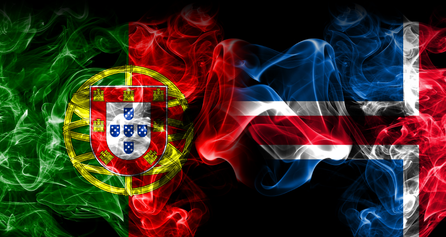Rannsóknarsetur
Rannsóknasetur um smáríki, Rannsóknasetur um norðurslóðir og Höfði friðarsetur Reykjavíkurborgar og Háskóla Íslands starfa innan vébanda Alþjóðamálastofnunar.

Höfði friðarsetur
Lesa meira
Rannsóknasetur um smáríki
Lesa meira
Rannsóknasetur um norðurslóðir
Lesa meiraVerkefnin
Alþjóðamálastofnun beitir sér fyrir auknu samstarfi milli fræðimanna, atvinnulífs og opinberra aðila á sviði alþjóðamála og gengst fyrir ráðstefnum, umræðufundum og fyrirlestrum um efni sem tengjast starfssviði stofnunarinnar. Stofnunin er vettvangur fyrir fræðileg alþjóðasamskipti og þverfagleg þjónustuverkefni fyrir atvinnulíf, fyrirtæki og stofnanir.
Útgáfa

Reclaiming the Epistemic Basis of Liberal Democracy - RECLAIM Discussion Paper 2025/1
Project: RECLAIM
Author: Maximilian Conrad
This discussion paper outlines the RECLAIM project’s ideal-typical understanding of the post-truth condition. Such an ideal-typical understanding is necessary as a heuristic device for the empirical analysis of the various phenomena that – collectively and through their interplay – constitute the post-truth phenomenon. Moreover, an …

RECLAIM Policy Brief - Protecting Quality Journalism and Media Freedom
Project: RECLAIM
- The independence and freedom of the media must be safeguarded by protecting professional journalism from unrestrained market forces and negative state interference. The EU has a special role to play in securing this aim.
- The EU should provide funding opportunities for media that uphold high standards of reporting, …

RECLAIM Policy Brief - Priming Politicians for Post-Truth
Project: RECLAIM
- The most prominent narratives put forward on migration and border policy in a number of European parliaments (Italy, Poland, Germany, Austria, European Parliament) have not only become more hostile towards migrants but are increasingly disconnected from facts and evidence-based knowledge.
- By their own account, mainstream politicians have a …

RECLAIM Policy Brief - EU Defence of Democracy
Project: RECLAIM
- Disinformation as a Democratic Threat and the Need for a Holistic Response: The EU views disinformation not just as misleading content, but as a systemic threat to its core democratic values—democracy, human rights, and the rule of law. In response, it has adopted a comprehensive and evolving strategy …

RECLAIM Policy Brief - Empowering Citizens in a Changing Media
Project: RECLAIM
- Citizenship education in Europe constitutes a mosaic of different national and subnational approaches. In order to empower citizens against a manipulative media and information environment, more and better coordination at the EU level is necessary while at the same time respecting national and subnational competences in the area …

RECLAIM Policy Brief - Countering FIMI through Digital Diplomacy in Europe
Project: RECLAIM
- The EU has to develop sufficient capabilities to defend its interests and project its values on the international stage even under post-truth conditions. Developing effective digital diplomacy skills and capabilities is an indispensable part of this effort. This should entail coordinated communication efforts to build a community of …

RECLAIM Policy Brief - A New Governance Regime for Social Media
Project: RECLAIM
- Disinformation campaigns on social media are aimed at disrupting liberal democracies, creating distrust amongst citizens in their democratic institutions and intensifying political/affective polarisation.
- The spread of disinformation and ‘fake news’ – particularly on social media – undermines the public sphere and severely inhibits the ability of citizens to …

Post-Truth Politics in Action? Representation of the Media in Spanish Radical Parties’ Electoral Campaigns
Project: RECLAIM
Authors: Taru Haapala and Juan Roch
ecent research on the EU institutional response to post-truth politics has shown a gradual shift of focus from external threats to internal democratic challenges, including populist parties and elections. The case of Spain is particularly relevant as the country’s “disinformation landscape” has …









